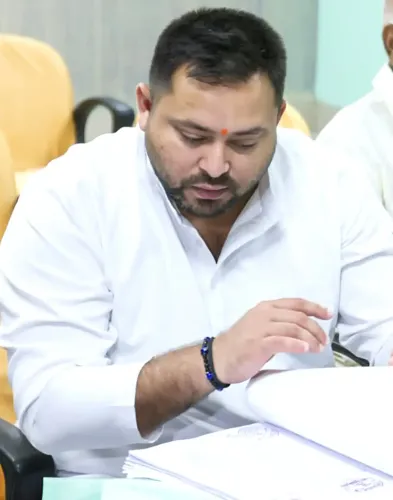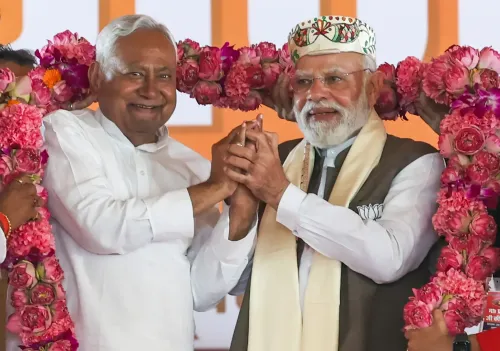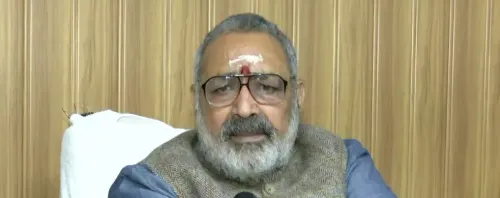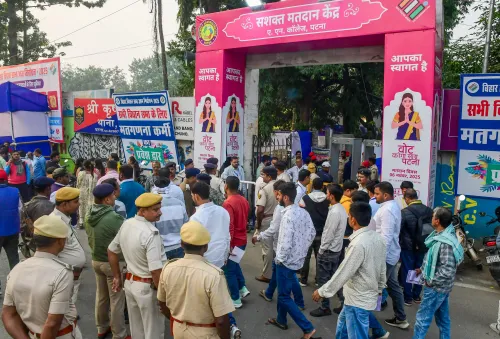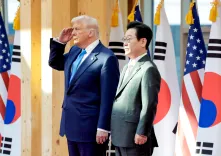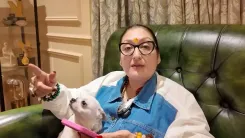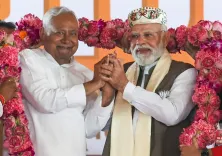Why Did Piyush Goyal Criticize Big Pharma's Patent Tactics?
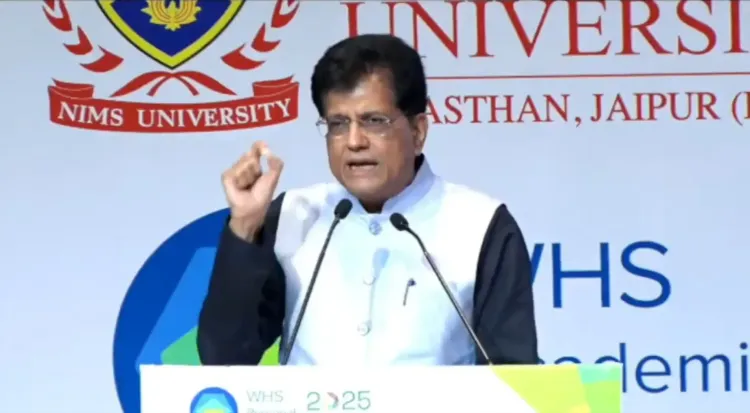
Synopsis
Key Takeaways
- Piyush Goyal criticizes Big Pharma's patent practices.
- India prioritizes equitable access to healthcare during crises.
- The Ayushman Bharat scheme provides coverage for over 620 million.
- India focuses on holistic health through various initiatives.
- Global cooperation is essential for a healthier future.
New Delhi, April 27 (NationPress) Minister of Commerce & Industry Piyush Goyal on Sunday delivered a scathing critique of global pharmaceutical companies that attempt to extend patents for medications through minor incremental innovations, a practice that could hinder millions from accessing affordable healthcare.
Speaking at the World Health Summit (WHS) Regional Meeting Asia 2025, hosted at Bharat Mandapam, the minister underscored that, unlike several other countries that implemented export restrictions during the Covid-19 pandemic, India focused on ensuring equitable access for everyone, remaining true to its age-old principle of Vasudhaiva Kutumbakam — "the world is one family."
His remarks targeted the practice of evergreening patents, where companies deliberately extend protection for their products by making trivial modifications or claiming new applications, thus delaying or blocking the entry of generic competitors. This strategy allows them to uphold market monopolies and continue profiting from high prices beyond the standard 20-year patent duration.
In contrast, Goyal accentuated India's proactive and benevolent global response during the Covid-19 crisis, which included supplying nearly 300 million vaccine doses, many at no cost, to less developed and vulnerable nations as part of the country's commitment to the principle that "the world is one family."
He praised that the inaugural WHS Regional Meeting in Asia was centered on "Scaling Access to Ensure Health Equity". He highlighted that access to quality healthcare is pivotal for sustainable development. Goyal recalled his personal discussions with global leaders during the pandemic, emphasizing how India guaranteed the supply of essential medications at equitable prices, resisting the trend of capitalizing on global health emergencies.
Sharing insights from India's journey towards enhanced healthcare access, the minister encouraged attendees to witness firsthand the nation’s efforts in providing quality healthcare, even in remote areas.
Goyal pointed out that over 620 million individuals are now eligible for free healthcare under the Ayushman Bharat scheme, the world’s largest government-sponsored health insurance initiative, underscoring that India’s commitment is rooted in compassion rather than profit.
Quoting Prime Minister Narendra Modi, the minister stated: "For us, healthcare is not just about treating a sick individual. It encompasses preventive healthcare, wellness, mental health support, and fostering a better lifestyle for society as a whole."
He elaborated on India’s comprehensive approach to human welfare, highlighting initiatives such as the Swachh Bharat Mission which promotes dignity and sanitation, especially for women; the Pradhan Mantri Awas Yojana, which has seen over 40 million homes constructed; the Jal Jeevan Mission, which has expanded tap water access from 30 million to 160 million rural households; the Ujjwala Yojana, which provides free cooking gas connections to shield women from indoor air pollution; and the distribution of free food grains to 800 million citizens during and after the pandemic.
Goyal asserted that physical health, mental well-being, clean environments, quality education, digital connectivity, and economic empowerment collectively lay the foundation for a genuinely healthy society.
Reaffirming India’s dedication to the global health agenda, he urged all nations to unite in pursuing a healthier, more equitable future for every global citizen.

